Diet has always been an important component of one’s health. We often mistakenly believe that only rare and expensive foods can prevent cancer and other dangerous diseases. However, scientists have shown that the easily accessible and regular foods also play a great role in helping us prevent cancer. Here are some foods and tips for you to refer to for your daily nutritional menu.
No disease that can be treated by diet should be treated with any other means.
9 foods to be included/excluded in your diet to fight cancer
1. Tomato – potential vegetable for cancer prevention
Tomatoes contain lycopene – the pigment responsible for the red color of the fruit, which helps reduce the risk of certain types of cancer (including prostate cancer) thanks to its high antioxidant capacity. A few studies have found that processed tomato products, such as juices, pastes or sauces, also have an increased anti-cancer effect. (1)

2. Consume a reasonable amount of alcohol
Alcohol has always been a controversial drink regarding its effect on human health. However, consuming the right amount of alcohol is recommended to limit the risk of cancers of the mouth, larynx, esophagus, throat, breast, liver, rectum or colon. In particular, women at high risk for breast cancer should talk with their health care professional about how much alcohol they should consume. (2) Currently, the American Cancer Society recommends that men should drink no more than 2 drinks per day and 1 drink per day for women.

3. Grapes
Grapes and grape juice, especially purple and red grapes, contain resveratrol, which has potent antioxidant and anti-inflammatory properties. In laboratory studies, resveratrol in grapes blocked the type of damage that can trigger the development of cancer cells. (1)
However, you should also note that there is currently not enough evidence to say that merely eating and drinking grape juice or wine (or taking supplements) can prevent or treat cancer.

4. Garlic – seasoning food and health-promoting ingredient
Garlic contains allicin, a compound that has been shown to kill cancer cells in test-tube studies. Some studies have found that eating a lot of garlic can reduce the risk of stomach, prostate, and colorectal cancers. (4)
2–5 grams (about one clove) of fresh garlic in your diet each day can help you harness its beneficial properties.

5. Green Tea
Several experimental studies have found that green tea slowed or stopped cancer growth in colon, liver, breast, and prostate cells. Green tea has a similar effect on lung tissue and skin. On the other hand, in a few long-term studies, tea has been linked to a reduced risk of bladder, stomach, and pancreatic cancers. (1)
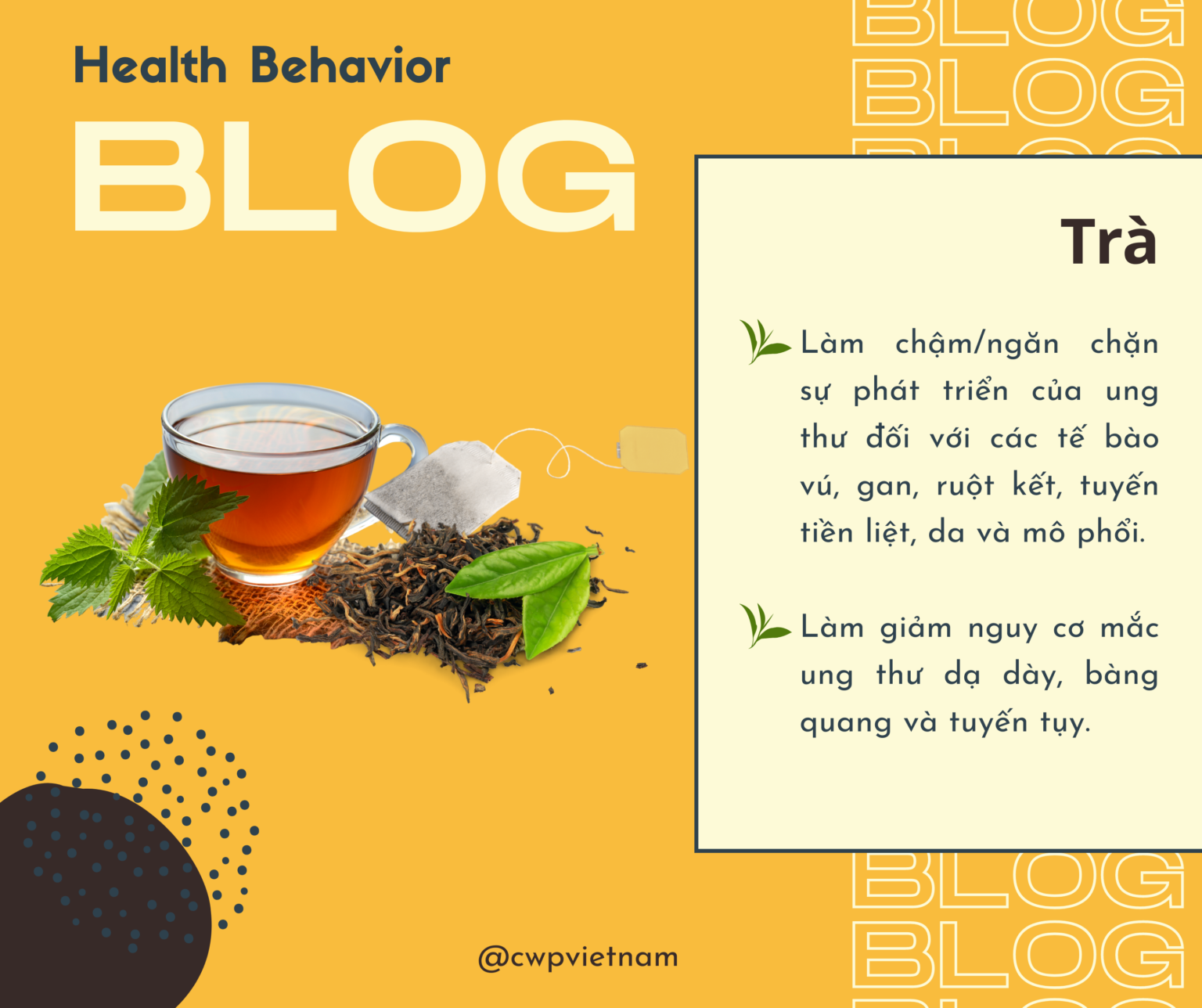
6. Supplement your diet with healthy fats
You should avoid trans fats or partially hydrogenated oils found in packaged foods and fast foods. In addition, you should also limit saturated fats from red meat and dairy products to no more than 10% of your daily calories. Instead, choose more unsaturated fats from fish, olive oil, nuts and avocados. Omega-3 fatty acids found in salmon, tuna, and linseeds may fight inflammation and support your brain and heart health. (3)
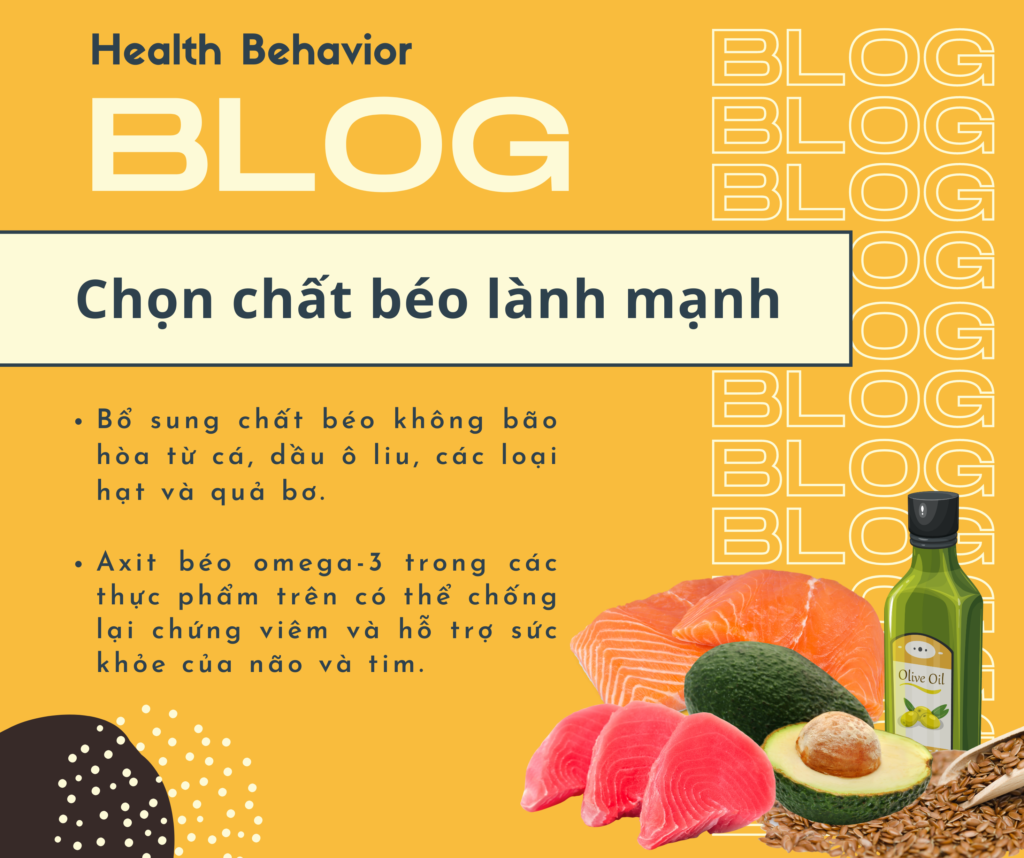
7. Consume foods rich in folate
Natural folate is an important B vitamin that helps protect our body against colon, rectal and breast cancers. You can easily supplement Folate with cereals, whole wheat products, juices such as oranges, melons, and strawberries. Other good sources of folate are asparagus and eggs, legumes, sunflower seeds, and green leafy vegetables like spinach or romaine lettuce. You should obtain folate from fruits, vegetables, and whole grain products rather than from supplement pills.
Note: Women who are pregnant or may become pregnant should take a high vitamin B supplement to get enough folic acid to help prevent some birth defects. (1)
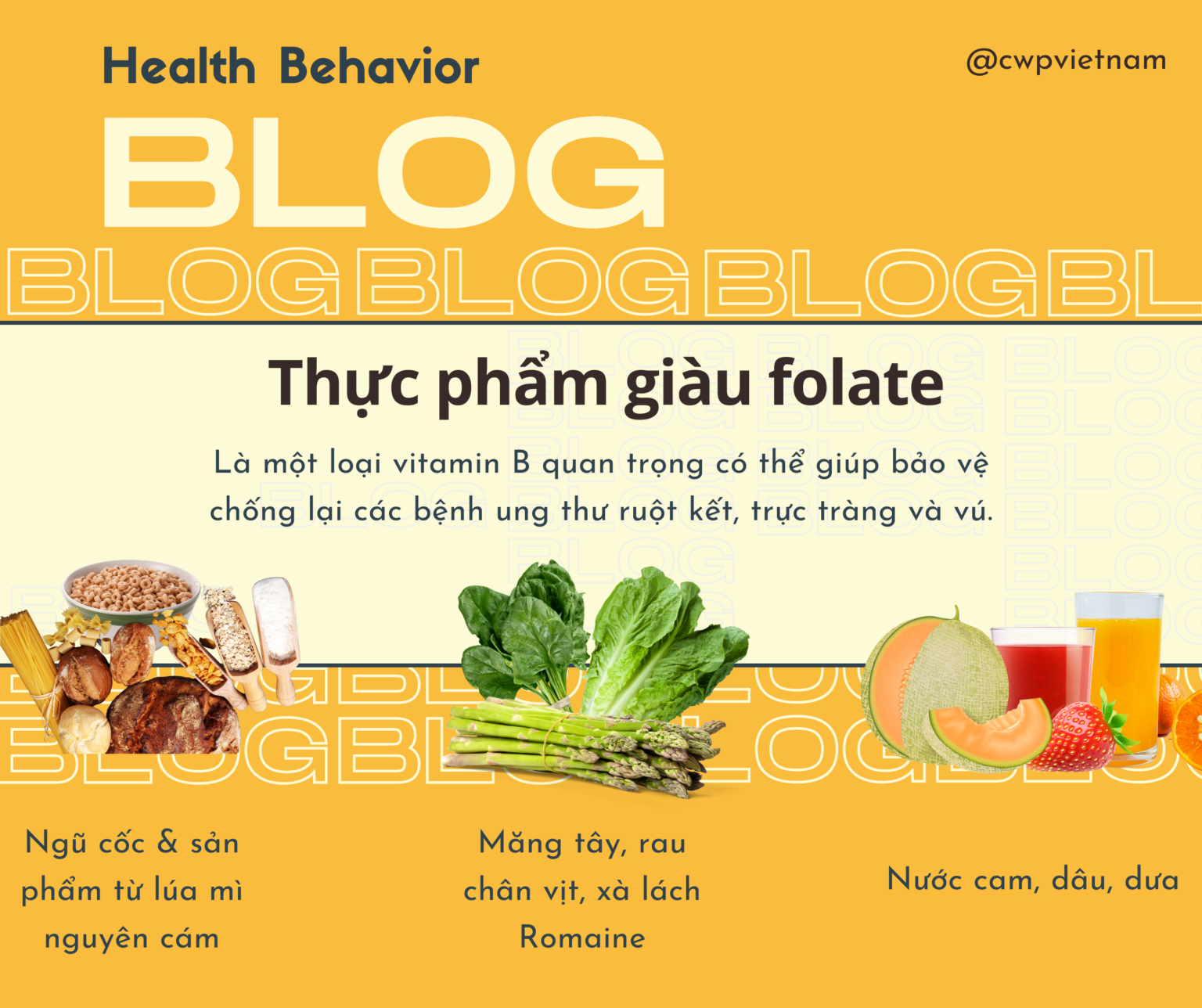
8. Control the amount of red meat and processed meat in your diet
If you consume about 50 grams of processed meat or 100 grams of red meat per day, your risk of colorectal cancer increases by 16% for processed meat and 12% for red meat. (2) This could be due to nitrate preservatives or other substances used in the processing of the meat, although cancer risk factors are also increased with eating red meat. You should limit the amount of processed meat in your diet each day and get better sources of protein from animals and plants like fish, chicken, eggs, nuts and soy, instead of just relying on red meat. (3)
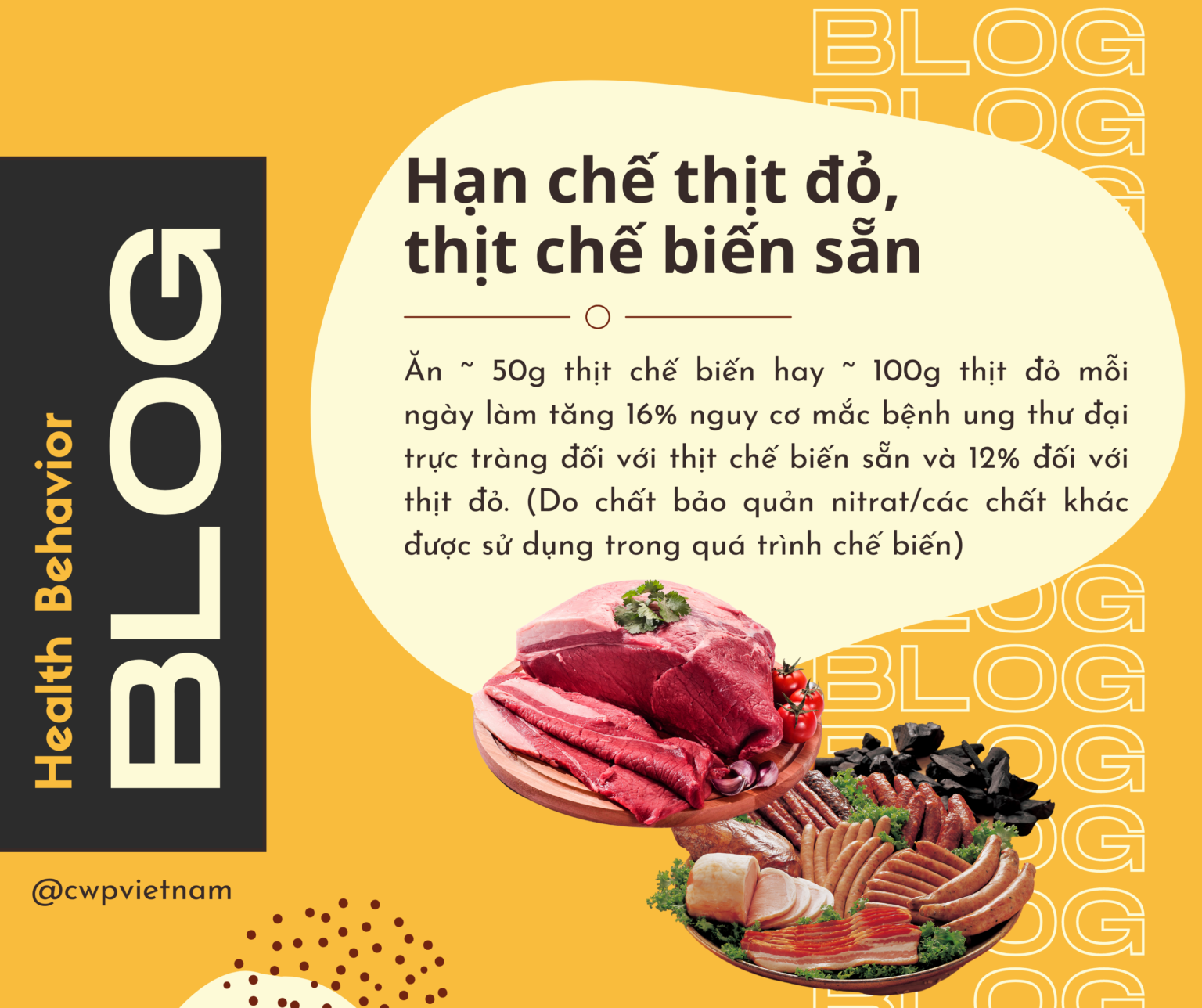
9. Limit fast food consumption
Fast food tends to be high in energy and is often consumed in large portions. Research has shown that diets comprising fast foods and other processed foods high in unhealthy fats, starches or sugars; or “Western-style” diets (characterized by high amounts of added sugar, meat and fats), are prone to lead to overweight and obesity, which is a risk factor for many cancers. (2) So while they are quite convenient and delicious, as well as improve the mood of consumers; Pay attention to your diet!
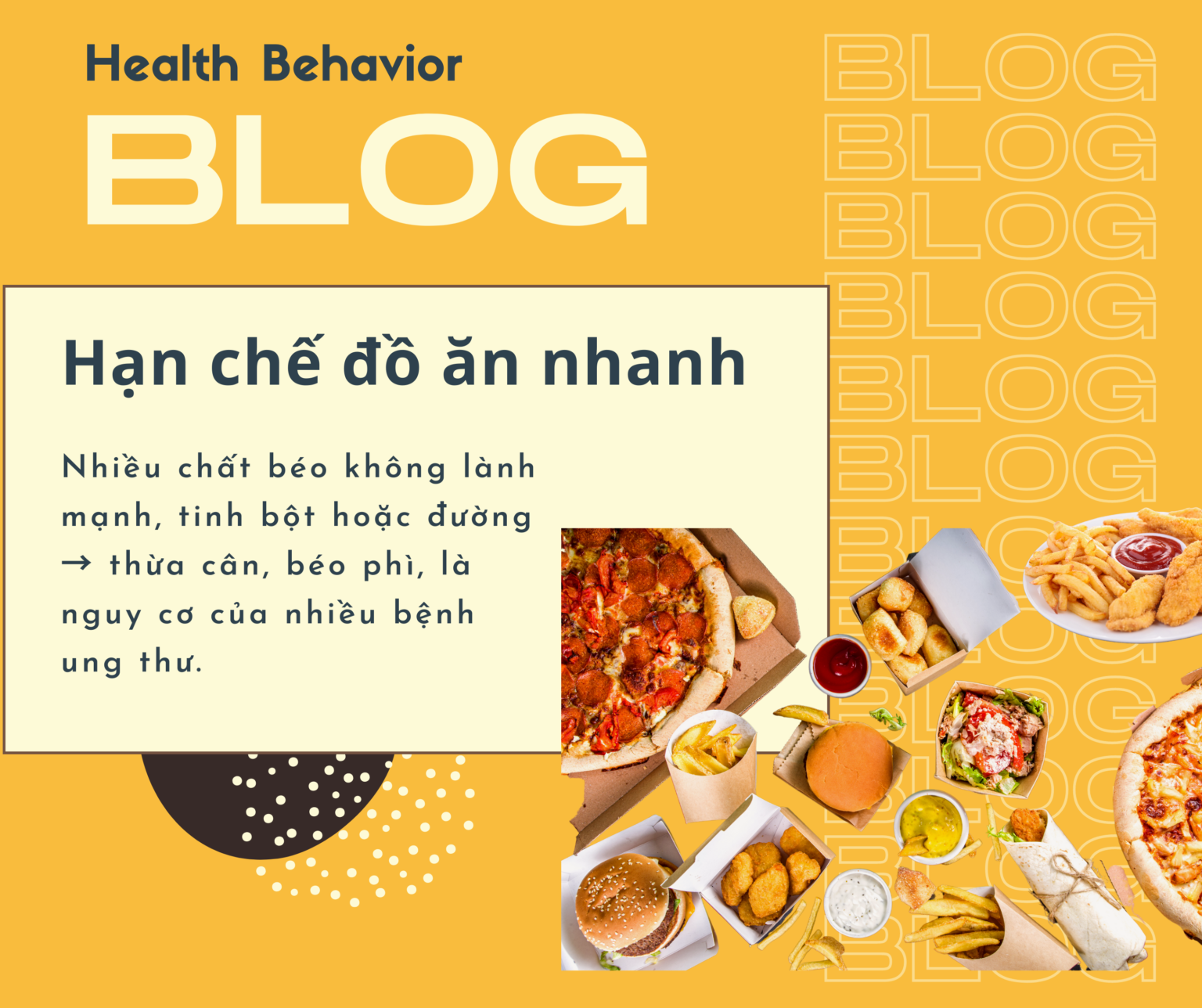
Article written by Nguyễn Châu Anh
